- Home
- David Gemmell
White Wolf: A Novel of Druss the Legend dt-10 Page 13
White Wolf: A Novel of Druss the Legend dt-10 Read online
Page 13
Skilgannon chuckled. ‘You would have liked my father,’ he said. ‘There were no shades of grey with him, either. Everything was black and white.
You remind me of him.’
‘Is he still alive?’
‘No. He led a suicidal charge against a Panthian regiment. It allowed some of his men to escape. My father didn’t try to escape. He rode straight at the Panthian King and his bodyguard. His was the only body the enemy did not mutilate.’
‘They strapped him to his horse, and left a gold coin in his hand,’ said the axeman softly.
Skilgannon was surprised. ‘How did you know?’
‘I’ve lived most of my life among warriors, laddie. The talk around campfires is mostly about everyday matters, a good horse or dog.
Sometimes it’s about the farms we’ll all have one day when the fighting is done. When a hero dies, though, the word comes to those campfires. Your father was Decado Firefist. I’ve met men who served with him. Never heard a bad word said about him. I never met him — though we both served in Gorben’s army. He was cavalry and I’ve never liked horses overmuch.’
‘Were you with the Immortals?’
‘Aye, for a while. Good bunch of lads. No give in them. Proud men.’
‘Were you at Skein?’
‘I was there.’
Another silence deepened. Skilgannon saw the axeman’s eyes narrow.
Then he sighed. ‘Past days are best laid to rest. My wife died while I was at Skein. And my closest friend. It was the end of an era.’ He picked up his helm, wiped his hand round the rim and donned it. ‘Think I’ll find a place to sleep,’ he said. ‘I’m beginning to sound maudlin. And damn I hate that.’
Both men rose. The axeman put out his hand. ‘My thanks to you, youngster, for coming to an old man’s aid.’
Skilgannon shook his hand. ‘My pleasure, axeman.’
Then the warrior swept up his axe and walked away.
Skilgannon stayed where he was. The meeting with the axeman, with its easy camaraderie, had warmed him. It had been a long time since he had relaxed so much in the company of another human being. He wished the man had stayed longer.
He sat quietly on the slope. Hearing his father’s nickname of Firefist had opened long locked doors in the halls of his memory. The days immediately after news of Decado’s death reached them had been strange.
Skilgannon, at fourteen, had at first refused to believe it, convincing himself it was a mistake, and that his father would ride home at any moment. Messages of condolence arrived from the court, and soldiers visited him, talking of his father’s greatness. At the last he had to accept the truth. It tore a gaping hole in his heart, and he felt he would die of it.
He had never been so alone.
Decado left a will, instructing Sperian and Molaire to share custody of the boy until his coming of age at sixteen. He had also left two thousand raq — a colossal sum — lodged with a Ventrian merchant he trusted, who had invested it for him. Sperian, who had always been poor, suddenly found himself with access to capital beyond his dreams. Lesser men would have been tempted to appropriate some of it. Decado, however, had always been a fine judge of character. Sperian proved himself worthy of that trust from the start.
Untutored in economics, and unable to write, he engaged Greavas to help him manage the funds, and also tried to take an interest in Skilgannon’s schooling. This was difficult for him, since he understood little of what the boy had to study. Skilgannon did not make it easy at first. His heart was full of bitterness, and he would often rail at Sperian or Greavas, ignoring their instructions. His studies began to suffer, and he was, at the end of the term, demoted to the second class. Instead of accepting that this was a result of his own folly, he shouted at Greavas that he was being victimized because one of his guardians was a freak.
Greavas had packed his bags and left the same night.
Skilgannon had stormed around the house, his anger uncontrollable.
Sperian found him sitting in the garden. The servant was furious.
‘You should be ashamed of yourself,’ he said.
Skilgannon had sworn at him. In that moment Sperian did something no adult had ever done. Stepping in, he backhanded Skilgannon in the face. The boy was half stunned. The gardener, though slim, was a powerful man. ‘And I am ashamed of you,’ he said. Then he walked away.
Standing in the garden, his face burning, Skilgannon felt a terrible rage swell in his heart. His first thought was to find a dagger and stab Sperian to death with it. But then, as swiftly as it had come, his rage died. He sat down beside the small ornamental pond Sperian had built. The man was right.
Molaire found him there an hour later, still lost in his thoughts. ‘I brought you some fruit bread,’ she said, sitting down beside him.
‘Thank you. Do you know where Greavas went?’
‘I expect he’s at the Park Gates tavern. They have rooms.’
‘He’ll hate me now.’
‘What you said was hateful, Olek. It hurt him dreadfully.’
‘I didn’t mean it.’
‘I know. Best you learn from this. Never, in anger, say what you don’t mean. Words can be sharper than knives, and the wounds sometimes never heal.’
An hour later, with the moon high, Skilgannon entered the Park Gates tavern. Greavas was sitting at a corner table alone. Even to the fourteen-year-old he seemed strangely out of place. Most of the men here were labourers or craftsmen, burly and bearded, toughened by years of labour. In his blue silk flared-sleeve shirt, grey roots showing in his dyed yellow hair, the slim former actor stood out like a beacon.
Skilgannon approached him. He saw the sorrow in Greavas’s eyes, and felt the burden of his guilt drag down like a rock on his heart. ‘I am so sorry, Greavas,’ he said, tears in his own eyes.
‘Perhaps I am a freak. Don’t worry about it.’ Greavas turned away and stared out of the window.
‘You are not a freak. You are my friend and I love you. Forgive me and come home. Please forgive me, Greavas.’
The actor relaxed. ‘Of course I forgive you, stupid boy,’ he said, rising from his chair.
It was then that Skilgannon realized that a silence had fallen over the small crowd in the tavern. He looked round to see a lean, sharp-faced man staring at him. His eyes were glittering with malice. ‘Bad enough to have the likes of him in here,’ he said to the company, ‘without having him parade his little bumboys in front of us.’
Skilgannon was stunned. Greavas came alongside him. ‘Time to go, Olek. I’ll come back for my things later.’
‘What you need is a thrashing,’ said the man, suddenly pushing himself towards Greavas.
‘And what you need is a bath,’ said Greavas. ‘Oh, yes, and perhaps to eat fewer onions. Your breath would fell an ox.’
The man’s fist lashed out. Greavas swayed, the blow sailing harmlessly past him. Off balance, the man stumbled into Greavas’s outstretched leg and fell heavily against the table, striking his chin, and hitting the floor.
He struggled to rise and fell again.
Greavas led the boy outside. ‘Can you teach me to do that?’ asked Skilgannon.
‘Of course, dear boy.’
Once they reached the house gates Skilgannon paused. ‘I really am sorry, Greavas. Molaire says that sometimes word-wounds don’t heal. This will heal, won’t it?’
Greavas ruffled the boy’s hair. ‘This has already healed, Olek. How did you get that bruise on your face?’
‘Sperian hit me.’
‘Then perhaps you should apologize to him too.’
‘He hit me!’
‘Sperian is the kindest of men. Hitting you would have hurt him more deeply than that bruise hurts you. Go and find him. Make your peace.’
Sperian was in the garden, watering seed trays, when Skilgannon found him.
‘Did you bring him back?’ he asked.
‘Yes. I apologized and he forgave me.’
‘Good boy. Your father wo
uld be proud of that.’
‘I wanted to say…’
Sperian shook his head. ‘You don’t have to say anything to me, lad.
Here, give me a hand with these trays. I want them placed where the morning sun can warm the soil. We’ll put them on the well wall.’
‘I will never let you down again, Sperian. Not ever.’
The gardener gazed at him fondly, and said nothing for a moment. Then he patted his shoulder. ‘You take those two trays there. Be careful now.
Don’t want the dirt spilling out.’
Ten years later the memory of that night still brought a lump to his throat. Rising from the hillside Skilgannon took one last look out across the lowlands, then strolled back to where his companions waited.
Braygan was asleep, but the boy Rabalyn was sitting by the horses, his hands clutching the reins. ‘You can sleep now,’ said Skilgannon. ‘Did anyone try to steal the horses?’
‘No. I’ve kept watch, though. All the time.’
Skilgannon sighed. ‘You did well, lad. I knew I could trust you.’
CHAPTER SEVEN
RABALYN SLEPT FOR A WHILE, AND THEN AWOKE, GASPING, FROM A nightmare. His face was cold. Reaching up he touched his cheek.
It was clammy and wet. A little rain had fallen and his clothes were damp.
The healing skin on his face and leg began to itch and burn. Ignoring the pain, he got to his feet. Skilgannon was sitting with his back to a tree. The hood of his cloak was raised and his head was bowed. Rabalyn could not tell whether he was asleep or not. Carefully and silently he moved towards the warrior. Skilgannon’s head came up. In the moonlight it seemed his eyes were the colour of burnished iron.
‘I can’t sleep,’ said Rabalyn lamely.
‘Bad dreams?’
‘Yes. I don’t remember them now, but they were frightening.’
‘Come and sit,’ said Skilgannon. Rabalyn brushed wet leaves from a flat rock and settled himself down upon it. Skilgannon tossed him a folded blanket and the boy gratefully wrapped it round his shoulders.
‘That man with the axe was incredible,’ he said. ‘He’s so old and yet he beat all those men.’
‘He’s a former Immortal. Tough men,’ agreed Skilgannon. ‘Hard to believe any army could have defeated them.’
‘Who defeated them?’ asked Rabalyn.
‘The Drenai — at a place called Skein Pass. Five years ago now. That’s where Gorben died.’
‘I remember when the Emperor died,’ said Rabalyn. ‘We had a week of mourning back in Skepthia. We all had to have ashes in our hair. It was really itchy. Everyone said he was a great man. Then a little while later everyone said he was a terrible man. It was really confusing. Which one was he?’
‘Both, I guess,’ said Skilgannon. ‘When he died he was the Emperor of all the lands of the east. No-one knew then whether his heirs would prove as capable. So people were careful with their opinions. They praised the dead Emperor. Then, when the civil wars broke out, and nations like Tantria and Naashan broke away from the empire, they became more daring, talking of him as a conquering tyrant.’
‘Did you know him?’ asked the lad. ‘Was he a tyrant?’
‘No, I did not know him. I saw him once. He came to Naashan — two thousand Immortals with him. There was a massive parade. Flowers were strewn along the Great Avenue, thousands of them. And tens of thousands of people gathered to watch him ride by. He was a fine-looking man, broad-shouldered, keen of eye. A tyrant? Yes. He killed any who opposed him, and even killed those he thought would oppose him. And their families. His devoted followers maintained he was driven by a desire to see peace across all the lands of the empire. For a while, once he had conquered, there was peace. So he was both. Great and terrible.’
‘Were you a soldier then?’
‘No. I was little older than you. I went to the parade with my friend Greavas.’
‘Why did the Emperor come to Naashan?’
‘For the coronation of a new king. His puppet king. It’s a long story, and I’m too tired to tell it all. In brief he had invaded Naashan and made it a part of his empire. The Naashanite Emperor was dead, killed in battle, and Gorben put his own man on the throne. His name was Bokram. At first most of the people were content. The war was over and peace looked immensely attractive.’
Rabalyn yawned. All this talk of history was tiring and confusing. War bringing peace, peace bringing war. Yet he did not want to sleep. There was something reassuring, even comforting, about sitting in the night silence and talking to Skilgannon. ‘Did he have a great horse?’ he asked.
Skilgannon smiled. ‘Yes, let us talk of truly important matters. He had a wonderful horse. Seventeen hands tall, and black as deepest night. The bridle was decked with gold — as was the saddle. It was a war horse the like of which I have never seen since.’
‘I would like a horse like that.’
‘What man wouldn’t?’
‘Did the Immortals have good horses?’
‘No. They were foot soldiers, heavily armoured. They marched in perfect unison. They wore ceremonial armour of black and gold. Handsome men, with fierce, proud eyes. I watched them. I was awestruck. The name they carried was a fitting one — for they seemed like gods to me.’
‘Why were they called Immortals?’
‘After every battle the Immortals who died would be replaced by men promoted from other regiments. Therefore there were always ten thousand of them. In that way the regiment itself was immortal. You follow? But the name came to mean something else. The Immortals were unbeatable. Like gods, they never lost.’
‘But they did lose.’
‘Aye, they did. Once. And that was the end of them.’
Rabalyn eased himself off the rock and lay down. The blanket felt warm on his shoulders. Resting his head on his arm he closed his eyes. ‘How did you become a soldier?’ he asked sleepily.
‘I was born to it,’ said Skilgannon. ‘My father was Decado Firefist. His father was Olek the Horse Lord. His father was Decado the Smiter. A line of warriors, Rabalyn. Our family has fought battles throughout time. Or that’s what my father used to say.’ Rabalyn heard the man sigh. ‘Always other men’s battles. Always dying in one lost cause after another.’
‘Will your son be a warrior?’
‘I have no sons. Perhaps that is just as well. The world needs no more warriors. It needs fine young men like you; men who can become teachers, or farmers, or surgeons. Or actors or gardeners or poets.’
Skilgannon fell silent. Rabalyn wanted to ask him more questions concerning Gorben’s horse. But as he tried to think of them he drifted into a dreamless sleep.
Skilgannon stared at the sleeping Rabalyn. For the merest moment he felt a touch of emotional warmth towards the lad. Then it passed.
Skilgannon had no place in his heart for such feelings. Friendship weakened a warrior. A man comes into this world alone, and he is alone when he leaves it. Far better to rely on no-one, to love no-one. He sighed.
Easy to say. He could even believe it — until thoughts of Jianna seeped into his mind.
The Witch Queen.
It remained baffling how one so beautiful could have become so cold and deadly.
Weariness washed over him. Leaning back against the tree he closed his eyes.
The parade had been remarkable to the fifteen-year-old Skilgannon. It was the first time he had seen elephants. Standing alongside Greavas, he had been totally stunned by the majesty and power of the six beasts. Silver chain mail had been fitted to their foreheads and chests. It glittered in the morning sunshine. And the tusks! At least four feet long, they gleamed like white gold. Wooden towers had been placed upon their enormous backs, each protecting four Ventrian bowmen.
The beasts are less useful than they look,’ said Greavas. ‘They can be panicked and turned. Then they will stampede back through their own lines.’
‘But they are magnificent.’
‘Indeed. Wondrous creatures.’
; Then had come the new Naashanite lancers, loyal to Bokram, the soon to be crowned king. Bokram himself rode at their head, a slim man, thin-faced and sharp of eye. He wore a tall, curved silver helm and breastplate, but his chain mail, elaborately fashioned, was of white gold.
‘Oh, how the fallen are mighty,’ whispered Greavas.
All Naashanites knew of Bokram’s history. Stripped of his titles three years before, Bokram had been banished by the old Emperor, only to flee to Ventria and enter the service of Gorben. Soon after that the Ventrians had invaded western Naashan. For two years the Naashanites had held out, but then the Emperor himself had fallen in battle, his body pierced by the iron swords of the Immortals. It was whispered that, as the Emperor lay dying, Bokram had run to his side and spoken to him, before slowly pushing a dagger through the old man’s eye. With the Naashanite army in flight, Bokram advanced into the capital. Today he would be crowned king in the presence of the true ruler, Gorben of Ventria.
‘You shouldn’t speak against Bokram,’ Skilgannon warned Greavas. ‘He is a harsh man, and they say all whispers reach his ears eventually.’
‘I expect they are right — whoever they are,’ said Greavas. ‘There have been many arrests among the noble classes. Others have fled. There is even a death warrant against the Emperor’s widow, and his daughter, Jianna.’
‘Why would they want to kill women?’
‘It is the normal practice, Olek. All members of the old blood royal must die. That way there will be no men to rise against Bokram and his new dynasty — and no women to birth new enemies for the future.’
‘I hope they don’t find them then.’
‘So do I,’ muttered Greavas. ‘She is the sweetest child. Well, when I say child, she is almost sixteen and about to be dazzlingly beautiful.’
‘You have seen her?’
‘Oh, yes, many times. I have been teaching her poetry and dance.’
Skilgannon was amazed. He said nothing, though, for at that moment the Emperor Gorben came into sight, riding the most magnificent war horse. He was a powerful man, his hair and beard jet black and gleaming.
Unlike Bokram he wore no gilded chain mail. His armour was of the highest quality, but designed for use rather than ornament. Behind him marched two thousand Immortals. ‘Now there is the real power,’ said Greavas. ‘Look closely upon him, Olek. He is — at this moment — the most powerful man in the world. He has it all. Charm, strength, charisma and enormous courage. He is adored by his men and he has a purpose. There is only one flaw.’

 Bloodstone
Bloodstone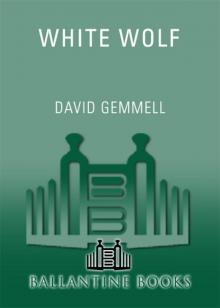 White Wolf
White Wolf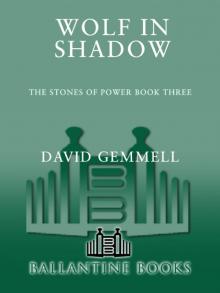 Wolf in Shadow
Wolf in Shadow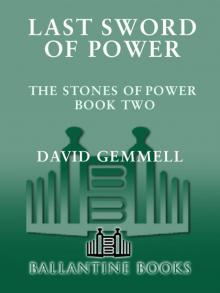 Last Sword of Power
Last Sword of Power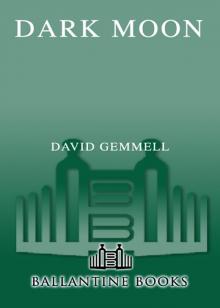 Dark Moon
Dark Moon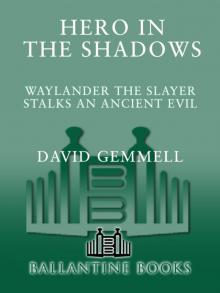 Hero in the Shadows
Hero in the Shadows Gemmell, David - Drenai 09 - Hero In The Shadows
Gemmell, David - Drenai 09 - Hero In The Shadows Waylander
Waylander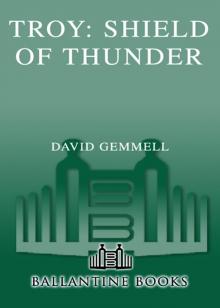 Shield of Thunder
Shield of Thunder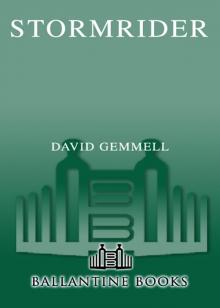 Stormrider Stormrider
Stormrider Stormrider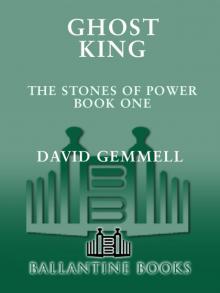 Ghost King
Ghost King Legend
Legend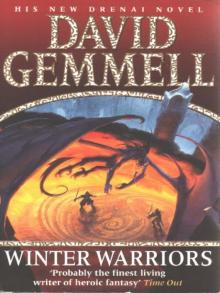 Winter Warriors
Winter Warriors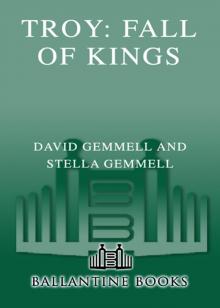 Fall of Kings
Fall of Kings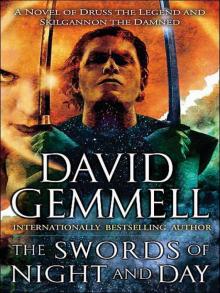 The Swords of Night and Day
The Swords of Night and Day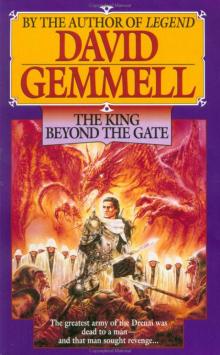 The King Beyond the Gate
The King Beyond the Gate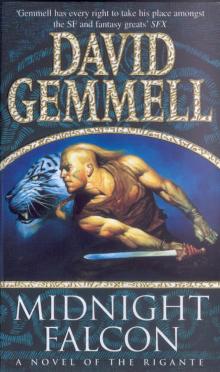 Midnight Falcon
Midnight Falcon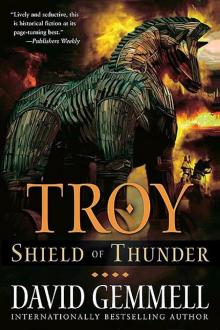 02 - Shield of Thunder
02 - Shield of Thunder In the Realm of the Wolf
In the Realm of the Wolf Ravenheart
Ravenheart The First Chronicles of Druss the Legend
The First Chronicles of Druss the Legend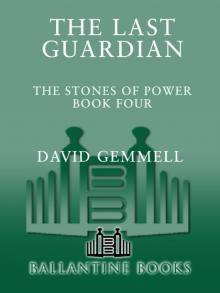 Last Guardian
Last Guardian Stormrider
Stormrider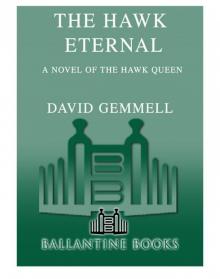 The Hawk Eternal
The Hawk Eternal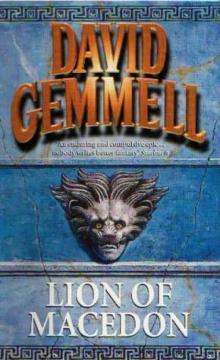 Lion of Macedon
Lion of Macedon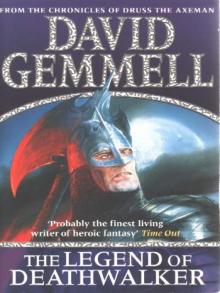 The Legend of Deathwalker
The Legend of Deathwalker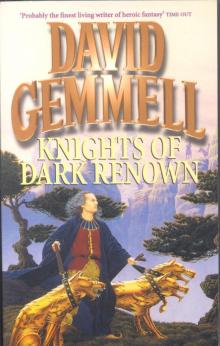 Knights of Dark Renown
Knights of Dark Renown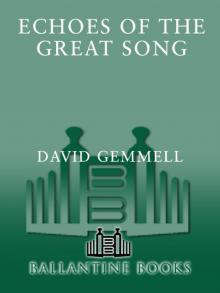 Echoes of the Great Song
Echoes of the Great Song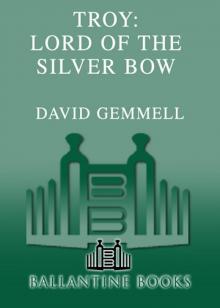 Lord of the Silver Bow
Lord of the Silver Bow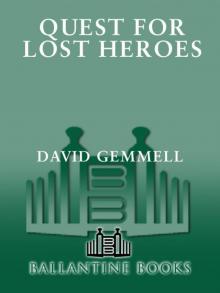 Quest for Lost Heroes
Quest for Lost Heroes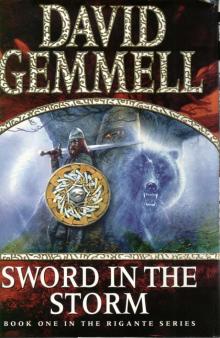 Sword in the Storm
Sword in the Storm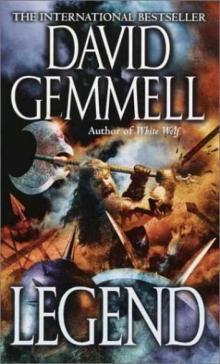 Drenai Saga 01 - Legend
Drenai Saga 01 - Legend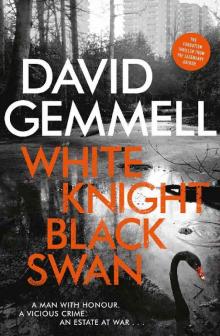 White Knight/Black Swan
White Knight/Black Swan![[Troy 02] - Shield of Thunder Read online](http://i1.bookreadfree.com/i/03/19/troy_02_-_shield_of_thunder_preview.jpg) [Troy 02] - Shield of Thunder
[Troy 02] - Shield of Thunder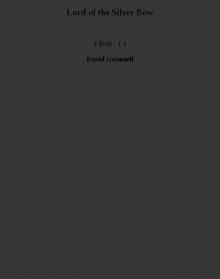 Lord of the Silver Bow t-1
Lord of the Silver Bow t-1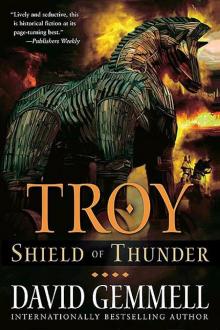 Shield of Thunder t-2
Shield of Thunder t-2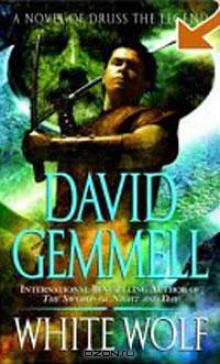 White Wolf: A Novel of Druss the Legend dt-10
White Wolf: A Novel of Druss the Legend dt-10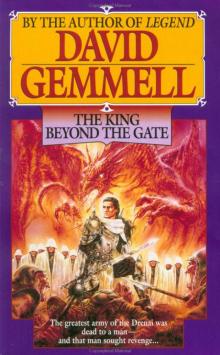 Drenai Saga 02 - The King Beyond the Gate
Drenai Saga 02 - The King Beyond the Gate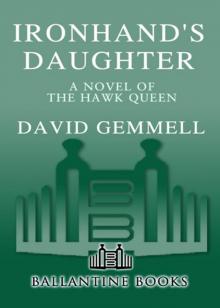 Ironhand's Daughter
Ironhand's Daughter Gemmell, David - Drenai 06 - The First Chronicles of Druss the Legend
Gemmell, David - Drenai 06 - The First Chronicles of Druss the Legend The Last Guardian
The Last Guardian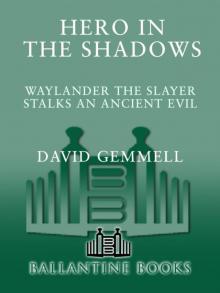 Hero in the Shadows: A Waylander the Slayer Novel
Hero in the Shadows: A Waylander the Slayer Novel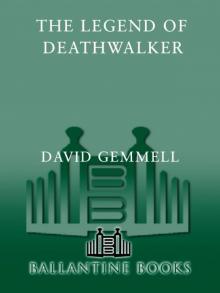 The Legend of the Deathwalker
The Legend of the Deathwalker